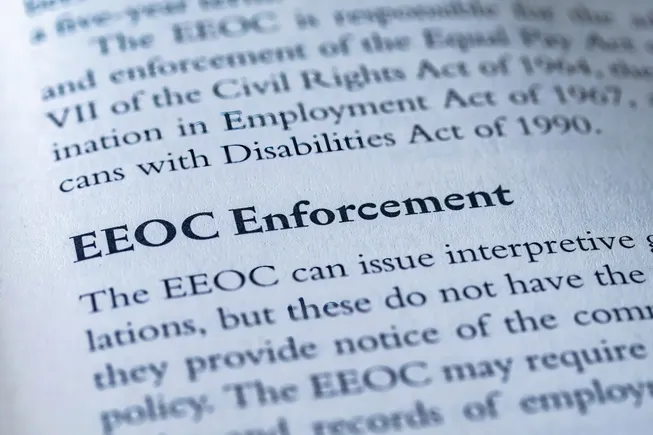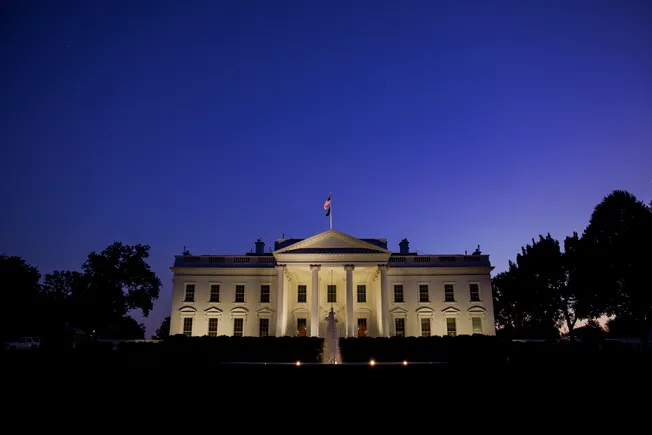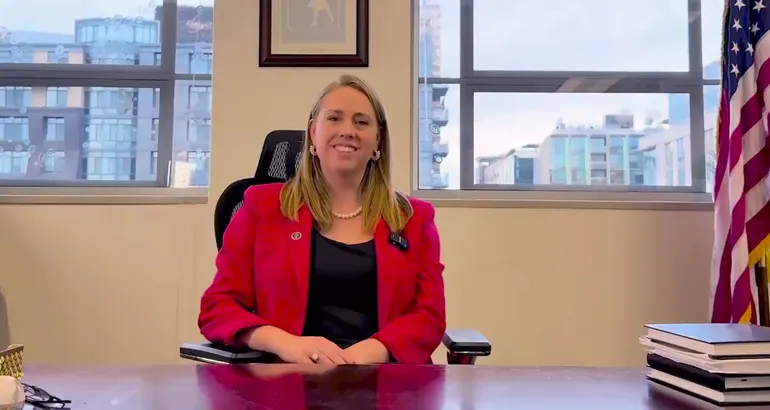Dive Brief:
- The U.S. Equal Employment Opportunity Commission’s policy to administratively close investigations of disparate-impact discrimination charges — pursuant to an executive order by President Donald Trump — is unlawful and should be enjoined, a former Amazon employee alleged in a lawsuit Oct. 20.
- The plaintiff in Cross v. EEOC worked as a delivery driver for Amazon and filed a discrimination charge alleging that the company’s policy of denying bathroom breaks to delivery drivers had a disparate impact based on sex. EEOC began to investigate the charge, but “abruptly ended” its investigation and closed the charge on Sept. 29, she claimed, days after the agency adopted a policy to close all such investigations under Title VII of the 1964 Civil Rights Act, as well as the Age Discrimination in Employment Act.
- The plaintiff asked the U.S. District Court for the District of Columbia to vacate the alleged policy and issue a permanent injunction preventing EEOC from implementing it. An EEOC spokesperson could not be reached for comment.
Dive Insight:
Trump’s second administration has driven a sea change in EEOC’s enforcement of equal employment opportunity statutes — one that employees and their advocates have been keen to contest in court.
The president’s April executive order directed EEOC Acting Chair Andrea Lucas and Attorney General Pam Bondi to assess all pending investigations, civil suits or positions taken in ongoing civil rights matters that involved disparate-impact liability theory and “take appropriate action” consistent with the order. The order called disparate-impact theory part of a “pernicious movement [that] endangers” equal treatment under the law that is “wholly inconsistent” with both the U.S. Constitution and equality of opportunity.
At the time of the order, both current and former EEOC officials were quick to criticize its legality. Karen Ortiz, then an administrative judge at EEOC whom Trump would later dismiss, told HR Dive that the president’s directive was “highly illegal” and noted that disparate-impact liability appeared in most of the discrimination cases litigated by EEOC. Former Democratic officials who served at EEOC and the U.S. Department of Labor similarly questioned the order’s legality and cautioned employers not to follow it.
Disparate-impact discrimination occurs when a seemingly neutral policy or action causes a disproportionate and unjustified negative harm to a group regardless of intent, according to the Congressional Research Service. This differs from disparate-treatment discrimination, which involves intentional harm based on a proscribed motive.
CRS noted that the U.S. Supreme Court first applied disparate-impact theory in interpreting Title VII in its 1971 Griggs v. Duke Power Co. decision. Congress then amended Title VII in 1991 to codify the theory.
EEOC’s shifting enforcement of disparate impact mirrors its decision to pull back from litigation on behalf of transgender plaintiffs alleging discrimination under Title VII. This trend, which also followed a Trump executive order, similarly faces a lawsuit from legal advocates who asked a district court to hold the agency’s nonenforcement unlawful. EEOC responded Oct. 20 in that case, claiming that the plaintiffs could not sue to challenge its enforcement activities.






Leave a Reply